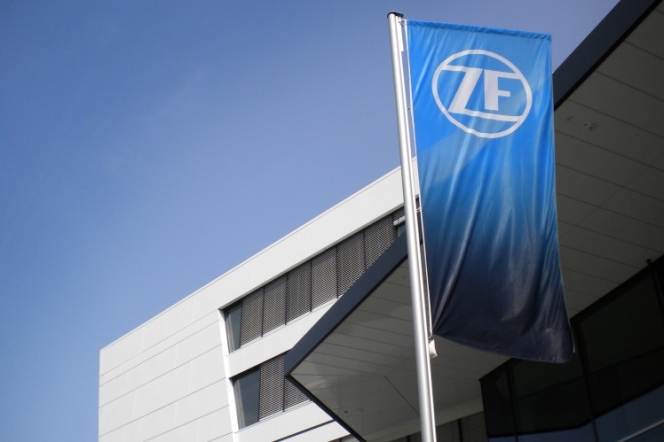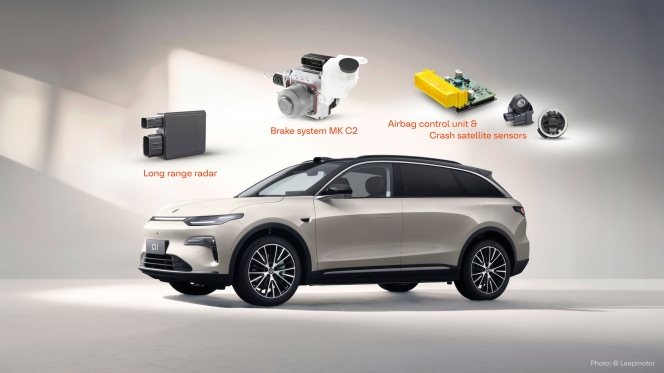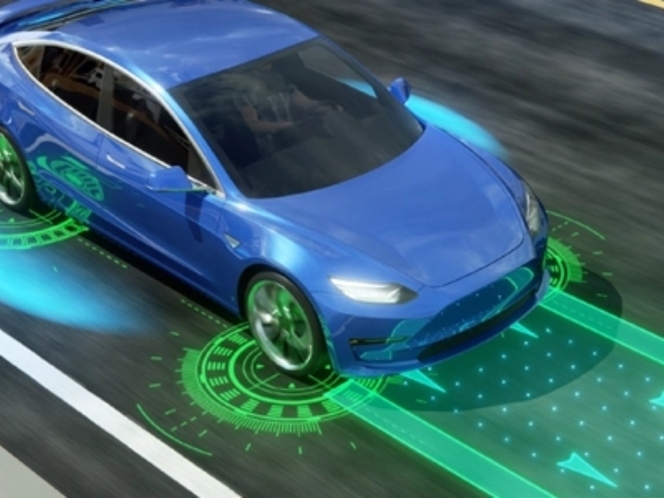Zebra Technologies Releases Findings From Automotive Ecosystem Vision Study
- By MT News
- February 14, 2023

Zebra Technologies Corporation released the findings of its Automotive Ecosystem Vision Study. The study aimed to gauge industry views, priorities and expectations the industry faces, and the challenges and opportunities resulting from rapid digital transformation. All data was collected and tabulated by third-party research firm, Azure Knowledge Corporation.
The study confirmed automotive manufacturers are under pressure to accommodate growing consumers’ preference for electric vehicles (EVs) in the near future. Automotive manufacturers must plan for a smooth transition to EVs, which have a very different requirements from raw materials to final assembly. Technology-led priorities will therefore be focused on increasing automation, building in-house technologies and expanding visibility across their respective production and supply chains.
The survey was conducted from August to September 2022, with participation from 1,336 respondents globally, including industry decision-makers, fleet managers and consumers. In APAC, the 350 respondents were surveyed across India, Greater China, Japan and South Korea.
APAC consumers, including India respondents, will prefer purchasing EVs in the future
The survey reflects that in the near future there will be a shift in preference, with more than half of consumers (53 percent globally, 60 percent in APAC, including India) indicating going for a hybrid electric vehicle (HEV). However, navigating this increasing demand for EVs comes with challenges as 68 percent of global automotive industry decision-makers (60 percent in APAC, including India) say they are under high pressure to produce next generation (electric) vehicles, while 75 percent of them (71 percent in APAC, including India) are under high pressure to deliver products that are more eco-friendly, sustainable and safer for the environment.
The study also highlights consumers across generations pushing automotive manufacturers’ acceleration to technology innovation as eight in ten say that sustainability and eco-friendliness are key priorities in their vehicle purchase and lease decisions. 87 percent of millennials prioritise sustainability in their vehicles followed closely by 78 percent of Gen Xers and 76 percent of baby boomers. Within APAC, 85 percent of consumers were aligned with these key priorities, consisting of 92 percent of millennials, 83 percent of Gen Xers and 72 percent of baby boomers prioritising sustainability the highest.
Consumers are driving the growing emphasis on personalisation – the ability to customise a vehicle to their liking. Nearly four in five consumers say personalisation options factor into their decision to purchase a vehicle, and eight in ten fleet managers share these same requirements for sustainability and personalisation. APAC consumers resonate with this most strongly when compared with their global counterparts, with 86 percent prioritising personalisation options in their purchasing decisions, and 92 percent of fleet managers sharing the same requirements.
While nearly 80 percent of automotive industry decision-makers globally (77 percent in APAC, including India) recognise consumers expect more sustainable and personalised vehicle options today, around seven in ten concede it’s difficult to keep up with increasing customisation demands. As a result, three in four automotive manufacturers globally say a top priority is to build strategic partnerships with tech companies for their next generation of production. This number is lower across APAC, at 72 percent and 64 percent respectively.
Tan Aik Jin, Vertical Solutions Marketing Lead APAC, Zebra Technologies, said, “The challenges that automotive manufacturers face today include finding and retaining qualified workforce, navigating supply chain disruptions, delivering on heightened expectations around speed and accuracy. While it’s heartening that consumers are leaning towards a greener automotive future with greater preference towards electric vehicles, this is a signal to automotive decision-makers to actively invest more in safer technologies and robust infrastructure, to better serve their customers.”
Trust and transparency in automotive manufacturing
Data and information transparency is highly important to consumers and fleet managers alike, and they are seeking more visibility into the automotive ecosystem. When considering a vehicle for purchase or lease, 81 percent of consumers globally (85 percent in APAC, including India) and 86 percent of fleet managers (92 percent in APAC, including India) indicate they want to understand the origin of materials and parts on their vehicle. Millennials lead the way in demanding more transparency in automotive manufacturing, as more than eight in ten (both globally and in APAC, including India) say it is important to have access to manufacturer information along with knowing if source materials and parts are sustainable and understanding how the vehicle is manufactured from end-to-end.
Beyond gaining greater visibility into the automotive manufacturing process, once they have their vehicles, 88 percent of consumers (82 percent in APAC, including India) and 86 percent of fleet managers (88 percent in APAC, including India) want to understand how the data from their vehicles will be used by the automotive ecosystem.
After a vehicle purchase, 83 percent of consumers and 84 percent of fleet managers expect ownership and control of the data their vehicle generates. This sentiment is similarly shared within APAC, by 86 percent of consumers and 88 percent of fleet managers.
Automotive supply chain visibility
A majority of consumers (79 percent globally, 83 percent in APAC, including India) and fleet managers (81 percent globally, 84 percent in APAC, including India) want end-to-end visibility during the manufacturing process. However, only around three in ten automotive industry decision-makers say they will prioritise connecting real-time data systems (30 percent in APAC, including India) to enable a holistic view of operations and increase visibility across production and throughout the supply chain over the next five years (32 percent in APAC, including India).
Jin added, “To provide real-time visibility throughout the supply chain, digitising operations via RFID and rugged handheld mobile computers can ensure that both regulations and sustainability expectations are met effectively and efficiently.”
Slightly more than one-third of OEMs globally and in APAC said autonomous mobile robots (AMRs), RFID, rugged handheld mobile computers and scanners as well as industrial machine vision will improve supply chain management. Similarly for suppliers, one-third of those surveyed cite mobile barcode label/thermal printers, wearable computers and location technology as the technologies to do so.
Rajnish Gupta, Vice President and Head – India and Sub-Continent Business, Zebra Technologies, said, “Manufacturers are innovating to meet changing customer demands, and they are increasing their investment in technologies to deliver more personalised and sustainable vehicles. Along with this, they also need to ramp up their end-to-end supply chain visibility to build the next level of trust with their customers. We are ready to help automotive manufacturers enhance their operational capabilities through digitalisation through varying solutions like the L10ax rugged tablet, RFD90 ultra-rugged UHF RFID sleds, MC9300 DPM mobile computer and Workforce Connect, just to name a few.”
Overall, around seven in ten automotive industry decision-makers (76 percent globally, 67 percent in APAC, including India) agree that digital transformation is a strategic priority for their organisation. In the next five years, they anticipate expanding their use of technology, with 47 percent (both globally and in APAC, including India) focused on additive manufacturing/3D printing and 45 percent globally (46 percent in APAC, including India) on supply chain planning solutions.
ZF, BMW Sign Long-Term Supply Agreement For Drive Technologies
- By MT Bureau
- February 03, 2026

German tier 1 supplier ZF Friedrichshafen and the BMW Group have entered into a long-term supply agreement for passenger car drive systems. The contract, valued at several billion euros, extends until the late 2030s.
The agreement focuses on the supply and continued development of the 8-speed automatic transmission (8HP). The partners aim to support low-emission mobility and maintain technological flexibility during the industry transition.
A central component of the partnership is the technical evolution of the 8HP transmission kit to meet the requirements of electrified drives. The development will focus on increasing efficiency and performance for future vehicle concepts.
Mathias Miedreich, CEO of ZF, said, “Together with BMW, we are sending a strong signal for innovation, efficiency, and sustainability in an industry undergoing dynamic change. This agreement highlights the strategic importance of our 8-speed automatic transmission as a key technology for the transformation of drive systems.”
The duration of the contract provides both ZF and BMW with planning stability in a changing market. ZF aims to strengthen its position as a system supplier while reducing risks through close collaboration with the carmaker.
Sebastian Schmitt, Head of ZF's Electrified Drive Technologies division, explained, “The new agreement with BMW shows how important long-term planning horizons are for technological advancements. It creates clarity and stability for both companies and enables us to align the next generation of the 8HP specifically toward efficiency, performance, and long-term viability.”
Leapmotor Selects Aumovio For Safety Technologies
- By MT Bureau
- February 02, 2026

Aumovio has entered a supply agreement with Chinese electric vehicle manufacturer Leapmotor to provide safety components for the carmaker’s B and C platforms.
Several models within Leapmotor’s B platform now utilise Aumovio's long-range radar, electric parking brake and airbag control unit (ACU). Models on the C platform, including the C10, C11 and C16 SUVs, feature the latest generation of the MK C2 one-box brake system, alongside the long-range radar and ACU.
The project was completed with a development cycle approximately one-third shorter than traditional automotive timelines. Aumovio attributed its speed to ‘local-for-local’ strategy in China, where the company operates 20 sites and employs around 10,000 staff. In 2024, Aumovio held a 14 percent share of market revenue in the region.
The supplied technologies include:
- MK C2 Brake System: A unit combining the master cylinder, electronic brake system, and brake booster. It is produced locally in Shanghai.
- Long-Range Radar: A sensor with a detection range of up to 280 metres, used for driver assistance across both platforms.
- Airbag Control Unit (ACU): Integrated with crash satellite sensors, these components are manufactured in Changchun.
Boris Mergell, Head of the Safety and Motion business area at Aumovio, said, “Pairing ‘China speed’ with ‘German quality’ technologies helped us to support a rapid roll-out with our latest safety technologies. This underscores Aumovio’s course towards an adaptive powerhouse that works flexibly and closely with customers to innovate. It also shows that we continue to strengthen our customer relationships in the important market China.”
The partnership supports Leapmotor’s international presence. The B10 and B05 models, which feature Aumovio's ACU and radar technology, were showcased at the IAA 2025 in Munich as part of the manufacturer's European entry.
LTTS Secures Multi-Year Deal From Automotive OEM For Engineering And R&D
- By MT Bureau
- January 28, 2026

Bengaluru-headquartered ER&D company L&T Technology Services (LTTS) has announced a multi-year engagement within its mobility segment from an automotive manufacturer. The agreement involves software, connectivity and digital engineering services across vehicle technology domains. This win follows the company’s investments in R&D labs and mobility infrastructure designed for programs with global manufacturers.
The engagement covers mobility engineering capabilities, including embedded systems, digital platforms, verification and validation, cloud integration and cybersecurity. LTTS intends to use its engineering expertise and delivery frameworks to support the customer's technology roadmap.
At present, LTTS operates 22 design centres and 100 innovation labs globally.
The agreement strengthens the partnership between LTTS and the automotive manufacturer in the area of mobility engineering. The company provides design, development, and testing services across the mobility, sustainability, and tech segments.
Alind Saxena, Executive Director and President, Mobility and Tech at L&T Technology Services, said, “We are proud to deepen our partnership with the valued customer through this strategic engagement. LTTS brings together domain-led engineering, secure development practices and excellence in global delivery to accelerate the future of premium mobility. The win reflects the trust placed in our teams and our commitment to delivering world-class engineering at scale”.
Valeo And NATIX Network Partner To Develop Open-Source World Foundation Model
- By MT Bureau
- January 25, 2026

French technology company Valeo and NATIX Network have announced a partnership to develop a multi-camera World Foundation Model (WFM). The project combines Valeo’s research in artificial intelligence and generative modelling with NATIX’s decentralised physical infrastructure network (DePIN) to create an open-source platform for autonomous driving and robotics.
The initiative aims to move beyond perception-based models by creating a system capable of predicting future states and reasoning about physical interactions in a four-dimensional environment. The model will be trained using NATIX’s data network, which has collected 600,000 hours of video data across the US, Europe and Asia over seven months. This data provides the multi-camera inputs necessary for the spatial perception required by autonomous vehicles and robots.
The partnership builds upon Valeo’s existing open-source frameworks, VaViM (Video Autoregressive Model) and VaVAM (Video-Action Model). While these frameworks were previously trained primarily on front-camera datasets, the integration of NATIX’s multi-camera network expands the AI’s field of vision to 360 degrees.
Under the open-source framework, the partners will release models, datasets and training tools. This approach is intended to allow the research community to fine-tune models and benchmark physical AI across various driving conditions and geographic regions. The collaboration seeks to accelerate the deployment of end-to-end AI models by learning from real-world edge cases captured by vehicles in operation.
Marc Vrecko, Chief Executive Officer, Valeo’s Brain Division, said, “Since our creation in 2018, Valeo’s AI research center has been at the forefront of AI research in the automotive industry, especially in the fields of assisted and autonomous driving. Our goal has always been to advance mobility intelligence safely and responsibly. By combining Valeo’s generative world modeling research expertise with NATIX’s global multi-camera data, we are accelerating both the quality and the accessibility of next-generation end-to-end AI models, enabling the research community to build upon strong open models.”
Alireza Ghods, CEO and Co-Founder, NATIX, added, “WFMs are a once-in-a-generation opportunity — similar to the rise of LLMs in 2017–2020. The teams that build the first scalable world models will define the foundation of the next AI wave: Physical AIs. With our distributed multi-camera network, NATIX has a clear advantage of being able to move faster than large OEMs.”







Comments (0)
ADD COMMENT